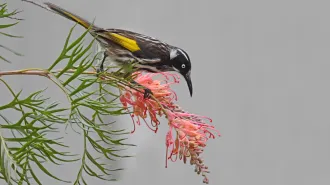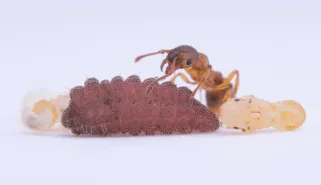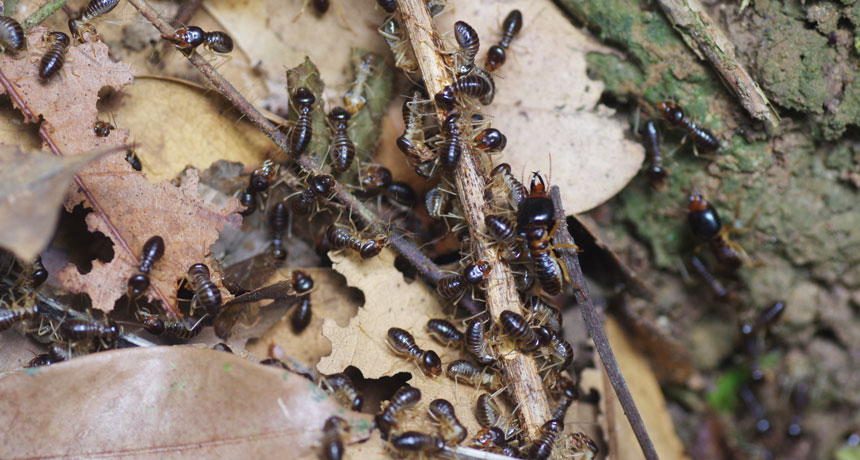
FOREST FRIENDS Common, large wood-eating termites, such as the Macrotermes species here, improve leaf decomposition, soil moisture and seedling survival in droughts, a study finds.
Yao Hua Law
It took hundreds of teabags and thousands of rolls of toilet paper for tropical ecologist Kate Parr and her colleagues to demonstrate that termites help tropical rainforests resist drought. Forests with more termites show more soil moisture, leaf litter decomposition and seedling survival during a drought than forests with fewer termites, the scientists report January 10 in Science.
The study was part of a project by the University of Liverpool and the Natural History Museum in London to examine how ants and termites affect decomposition and consumption of seeds, fruits and carcasses in rainforests of the Maliau Basin Conservation Area in northern Borneo.
Termites play an important role in tropical ecosystems, but “nobody knows exactly how important they are,” says Parr from the University of Liverpool. To isolate the effect of termites from the other soil critters, Parr’s team exploited termites’ cellulose diet.
In 2014, the researchers buried insecticide-soaked rolls of toilet paper as well as tainted teabags in four forest plots, each about the size of five Olympic swimming pools. Toilet rolls are like cotton candy for termites, Parr says, “this really amazing, easy-to-digest food for termites.” The team used poisoned teabags just in case some termites “were fussy and didn’t eat the toilet paper.” Termites died after eating the poisoned baits, while the 14 other most commonly found invertebrate groups, including ants and beetles, were unaffected. None of these other critters nosh on hard-to-digest cellulose.
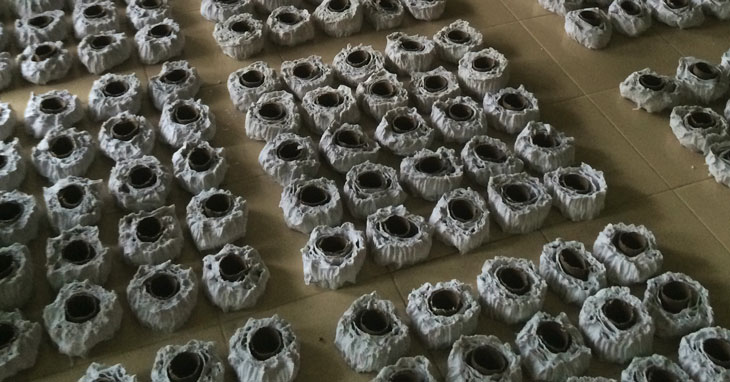
Over two years, the team destroyed any termite mounds that appeared, while replenishing the poisoned toilet paper every six months. In the end, about 3,500 rolls were used, including some without poison so the researchers could check how much termites were chomping. This helped the researchers gauge an area’s termite activity — a proxy for termite numbers. Treated plots saw termite activity fall by 45 percent, compared with four untreated plots.
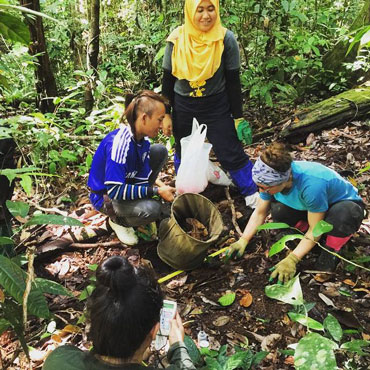
During the drought, termite numbers doubled and leaf litter decomposed faster in untreated plots than in treated plots. Untreated plots also had higher soil moisture, soil nutrient mixing and seedling survival rates. These effects were not observed during non-drought periods.
The researchers aren’t sure why termites kicked into high gear during drought, but suggested the insects might have benefited from easier tunneling in drier soil or fewer predators like ants.
People who study drought in tropical forests “always talk about number of trees that have died,” Parr says. But “if these systems didn’t have termites, those tree losses could be more substantial.”
